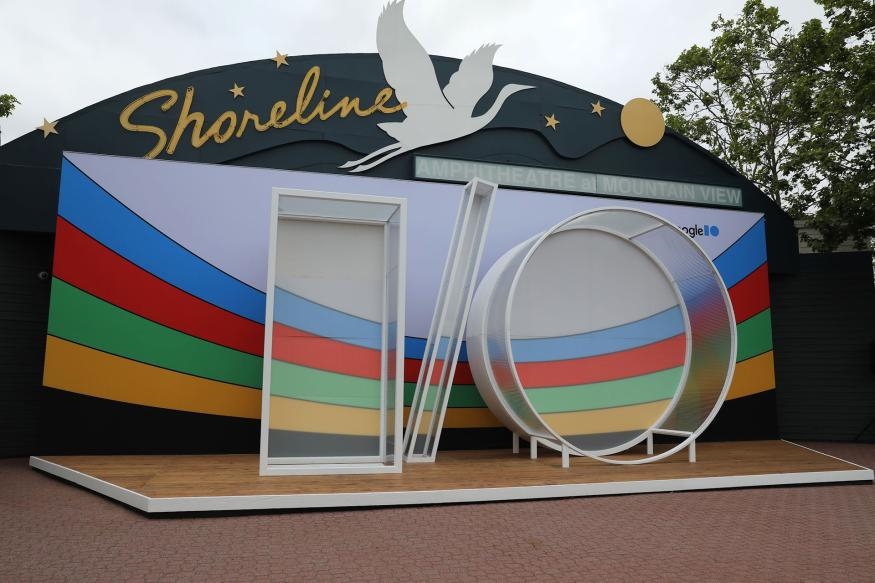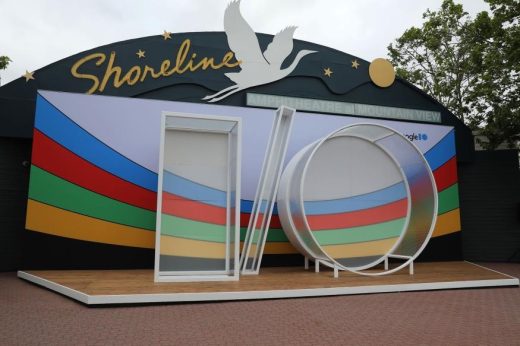Amazon’s Fire TV Stick 4K Max drops to $35, plus the rest of this week’s best tech deals
Google I/O 2023: Everything announced at the event
Pixel Fold, Pixel 7a and lots of AI.
To say the Google I/O 2023 keynote was packed would be an understatement. Google unveiled a flurry of new Pixel devices as well as the latest versions of Android and other platforms. It also won’t surprise you to hear that AI was everywhere — this was Google’s big chance to compete with OpenAI’s ChatGPT. Don’t worry if you missed something during the event, though, as we’ve got all the biggest announcements from the event.
Pixel Fold
There’s no doubt that the (previously confirmed) Pixel Fold was the star of the show. Google’s first foldable phone features the same Tensor G2 chip as the Pixel 7 Pro, but opens like a book to reveal a 7.6-inch display. There’s a 5.8-inch external display, and the cameras are only a slight step back between the 48-megapixel main camera, 10.8MP telephoto and ultra-wide lenses and an 8MP internal shooter. This is also one of the thinner foldables at 0.48in when closed. It’s available for pre-order today and will sell for $1,799 when it arrives in June.
Pixel 7a
Google’s budget (really, mid-range) phone just got a significant upgrade. The Pixel 7a sports the same Tensor G2 as its pricier Pixel 7 counterparts while adding features that were sorely missed on earlier A-series models, such as a smooth 90Hz display, a 64MP main camera and wireless charging. You can order it today for $499, or $50 more than its predecessor.
Pixel Tablet
Google first teased the Pixel Tablet a year ago, and it’s finally ready to ship its return to Android-powered slates. As mentioned last fall, this is really a hybrid 11-inch smart display. It can sit in a speaker dock to serve as a Google Assistant hub and Chromecast device, but detaches when you’re ready to watch videos or check your social feeds. It’s powered by the same Tensor G2 as the Pixel 7 and offers a healthy 12 hours of battery life. You can expect pen support, too. It’s available to pre-order today for $499.
Android 14
Google fully unveiled Android 14 at I/O. The major revision includes upgrades you saw in the previews, such as custom sharing features as well as stricter security, but also adds iOS 16-style lock screen customization complete with “cinematic” wallpaper that makes subjects stand out. You’ll see likewise see AI-generated wallpapers that are cued to images and art styles. Google will release the new OS late this summer, and is expected to deliver the upgrade to Pixel users first.
Wear OS
Google is still committed to improving its Wear OS smartwatch platform following last year’s overhaul. At I/O, the company introduced long-sought native watch apps for Gmail and Calendar that let you manage your messages and schedules from your wrist. WhatsApp is coming to Wear OS, too. Google also released its first developer preview for Wear OS 4, a major update that promises improved battery life and performance, simple watch backups and more accessibility. All the new software arrives later this year.
PaLM 2 AI model
In some ways, the most important announcement at I/O is for tech that sits behind the scenes. Google has unveiled a PaLM 2 AI language model that will underpin more than two dozen of the company’s products, including Bard. It’s faster and more efficient, and can run locally on mobile devices. It’s more adept at handling multiple languages and can generate JavaScript and Python code.
Search Labs
Among Google’s many, many AI-related introductions are three test features available through Search Labs. A Search Generative Experience provides automatically-generated overviews, exploration pointers and follow-ups. Code Tips will even offer programming snippets and advice. Add to Sheets, meanwhile, lets you plug search results into spreadsheets.
Bard
Google is rapidly expanding Bard’s capabilities. On top of using PaLM2, the generative AI chatbot will soon let you include images in your queries, and bring pictures into its responses. It will also integrate Google apps (such as exporting to Docs and Gmail) as well as partner products like Adobe Firefly (for turning ideas into images). More importantly, it’ll be much easier to use Bard in the first place — Google is dropping the waiting list and making Bard available in English to more than 180 countries, along with support for Japanese and Korean.
AI in Photos and Workspace
Like it or not, Google is putting generative AI in many of the apps you use. To start, Photos is getting a Magic Editor that can move subjects, add content and even replace the sky. The experimental feature will be available on some Pixel phones this fall.
Generative AI will also be available across core Workspace apps through Duet AI. Gmail on mobile will help you write messages. Slides will help you create background images using text descriptions. AI in Sheets will analyze your data, while Docs will offer “assisted writing.” Even Meet will use the technology to create unique video call backgrounds.
Everything else
There were numerous important updates across Google’s other products. Project Tailwind is an AI-driven personal notebook. The redesigned Home app is now available to everyone, with Matter support coming to iOS users in the weeks ahead. Find My Device will soon support a wider range of hardware, and detect unknown trackers to help catch stalkers. Google Maps, meanwhile, is bringing Immersive View to routes.

(19)



